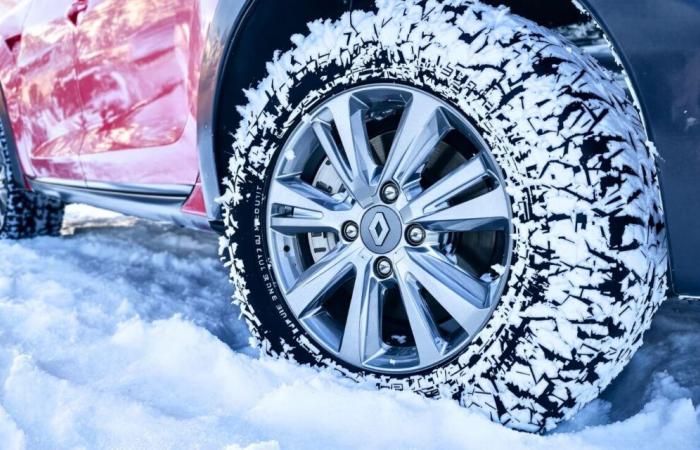
Be careful this winter: snow tires are mandatory without a fine, but your insurance is on watch!
As temperatures drop, the French government has decided to extend the educational period for the use of snow tires, waiving fines for this season. But beware of the implications for your insurance! Let's take a closer look at what this means for you during this winter period.
Also read:
Regulatory context
The Mountain Law 2adopted in 2021, requires the use of snow tires or equivalent devices in certain mountainous municipalities during the winter season. Initially, after three years dedicated to informing motorists, fines of 135 euros were to be applied from November 2024 for non-compliance. The legislation aimed to to strenghten safety but also to make drivers aware of potentially dangerous winter conditions.
A temporary respite
However, due to political instability this summer, no decree formalizing these fines has been signed. So, the so-called educational period is extendedexempting drivers from financial penalties for this winter. The authorities will nevertheless continue to verify the conformity of equipment, even without being able to impose fines, thus raising awareness without immediate financial penalty.
Implications for insurance
The absence of a fine does not mean that snow tires are not necessary. The companies ofassurances may require the use of these tires for guarantee complete coverage. In the event of an accident where snow tires are required but not used, some contracts may not cover damages, or apply higher deductibles, which could cost careless drivers dearly.
Insurance policy details
It is crucial to check the specifics of your insurance contract. In certain situations, the absence of snow tires could even result in a refusal of support by your insurer, especially if this oversight contributes to an accident for which you are responsible. It is therefore essential to understand the clauses of your insurance to avoid unpleasant surprises after an incident.
Case of accidents involving a third party
If an accident involving a third party occurs and your lack of snow tires contributed to it, your insurance could refuse to cover you. This provision only applies if you are found to be at fault in the incident. It is therefore essential to follow equipment recommendationsnot only for your safety but also for that of other road users.
Consequences on the bonus-malus
Regardless of the type of incident, any claim will affect your bonus-malus, leading to an increase in your insurance premium the following year. Some insurance companies, such as Axa, do not specifically mention snow tires in their contracts and do not exclude drivers who do not use them from a claim, but it remains prudent to follow the recommendations to avoid impacting your contract.
Preparations for next year
From next yearand theoretically with the implementation application of finesinsurance companies could begin to explicitly stipulate the obligation of snow tires to comply with the law. This could affect the way policies are written and the coverages offered. Drivers are therefore encouraged to anticipate these changes to remain compliant and avoid future sanctions.
More than 8 million vehicles banned in 2025, but this litmus test could save your car from the ban and avoid a hefty fine
This article explores the impact of regulations on snow tires and the strategies to adopt to remain in compliance with the law while optimizing your insurance coverage. With legislation changing, it is essential to stay informed to effectively navigate legal obligations and insurance contracts, ensuring safe and compliant winter driving.





